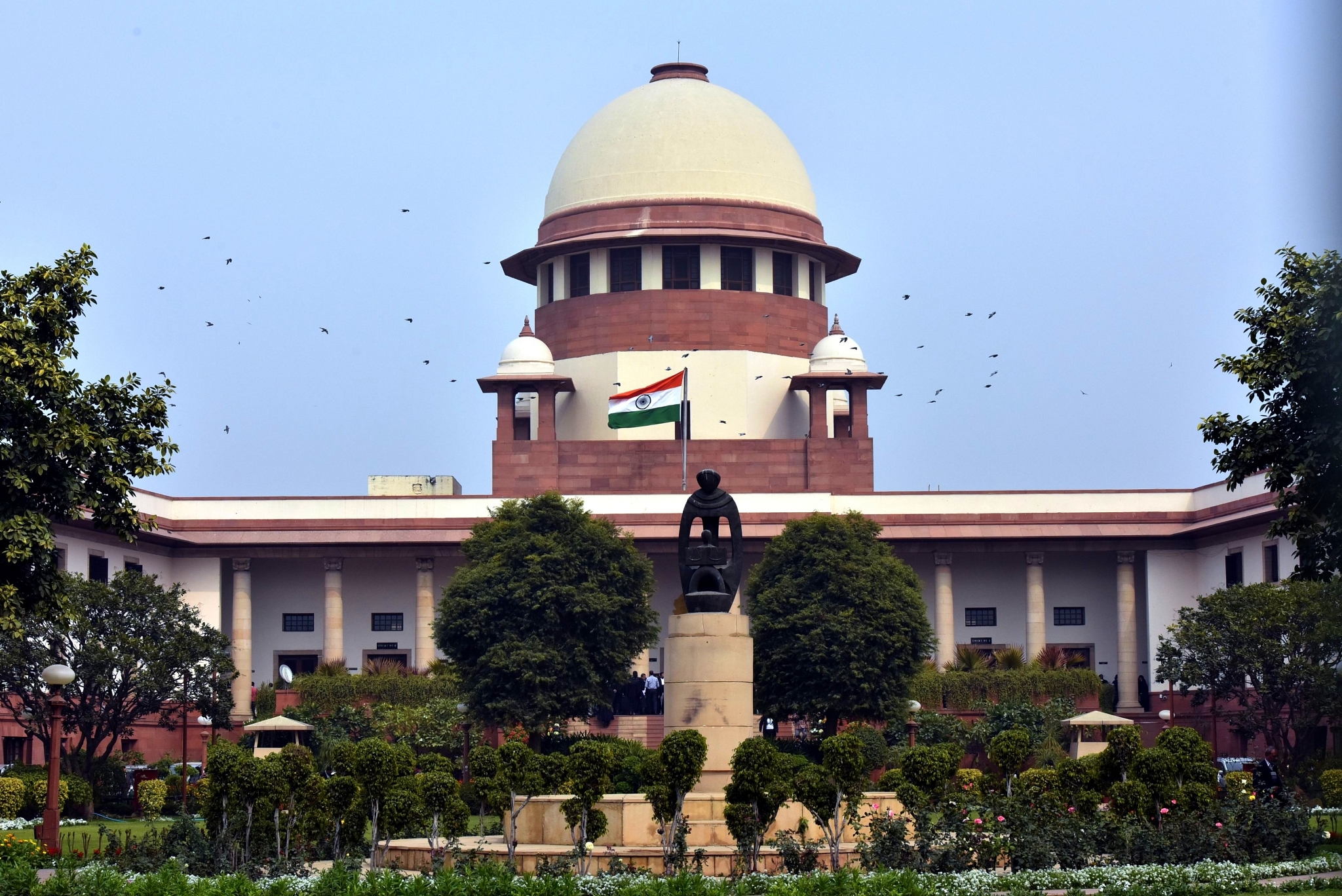News Brief
'No Extraordinary Circumstances To Exceed 50 Per Cent Ceiling Limit': SC Strikes Down Maratha Reservation Law

Supreme Court of India (Sonu Mehta/Hindustan Times via Getty Images)
The Supreme Court on Wednesday (5 May) struck down the Maharashtra State Reservation for Socially and Educationally Backward Classes (SEBC) Act, 2018 which extends reservation to the Maratha community in public education and employment.
A five-judge constitution bench headed by Justice Ashok Bhushan pronounced the verdict, which was reserved on 26 March. The Constitution bench had commenced the arguments in the matter on 15 March.
The Apex Court held that there were no extraordinary circumstances justifying the grant of reservation to Marathas in excess of 50 per cent ceiling limit.
The SC further added that the 2018 law violated the principles of equality and exceeding ceiling limit of 50 percent clearly violates Articles 14 and 15 of the Constitution.
The apex court also ruled against referring the judgment in Indra Sawhney case to a larger bench.
"We do not find any substance in the argument to refer the judgment in Indra Sawhney to a larger Bench. The said judgment has been repeatedly followed by this Court and has received approved by at least four Constitution Benches of this Court. We also follow and reiterate the proposition laid down in Indra Sawhney in paragraph 809 and 810," the SC said, reports Bar And Bench.
The Centre had told the Supreme Court that it is of view that the Maharashtra government can grant reservation to Maratha community in public education and employment.
Solicitor General Tushar Mehta, representing the Centre, said the decision of the Maharashtra government is constitutional as the 102nd Amendment does not remove a state of the power to declare its list of Socially and Educationally Backward Classes (SEBC).
Emphasising that the Maharashtra government granting reservation to Maratha community is constitutional, he said the Centre adopts the submissions of Attorney General K.K. Venugopal and these should be taken as Centre's view.
The AG had also submitted before the apex court that the 102nd Amendment does not take away power of the state legislatures to ratify a law to determine the SEBC and then confer benefits on them.
The hearing in the matter saw submissions being made on whether the landmark 1992 Indra Sawhney verdict (called the Mandal judgement), which capped reservation by 50 per cent, requires re-consideration by a larger bench.
Several states, including Karnataka, have expressed support for more than 50 percent reservation in jobs and education, depending upon the necessity and quantifiable data.
They had cited the 103rd Constitutional Amendment on 10 percent Economically Weaker Section (EWS) quota, to contend the Constitution itself now permitted reservation beyond 50 percent.
Petitioners who have challenged the Maratha quota said there was no need to reconsider the nine-judge bench in the Indra Sawhney case.
A batch of petitions challenged the Bombay High Court verdict which upheld 12 to 13 per cent reservations for Marathas in jobs and education under the Maharashtra Socially and Educationally Backward Classes (SEBC) Act, 2018. In December last year, the top court had declined to modify the stay order in implementing reservation for Marathas in job and education in Maharashtra.
(With inputs from IANS)
Support Swarajya's 50 Ground Reports Project & Sponsor A Story
Every general election Swarajya does a 50 ground reports project.
Aimed only at serious readers and those who appreciate the nuances of political undercurrents, the project provides a sense of India's electoral landscape. As you know, these reports are produced after considerable investment of travel, time and effort on the ground.
This time too we've kicked off the project in style and have covered over 30 constituencies already. If you're someone who appreciates such work and have enjoyed our coverage please consider sponsoring a ground report for just Rs 2999 to Rs 19,999 - it goes a long way in helping us produce more quality reportage.
You can also back this project by becoming a subscriber for as little as Rs 999 - so do click on this links and choose a plan that suits you and back us.
Click below to contribute.
Latest